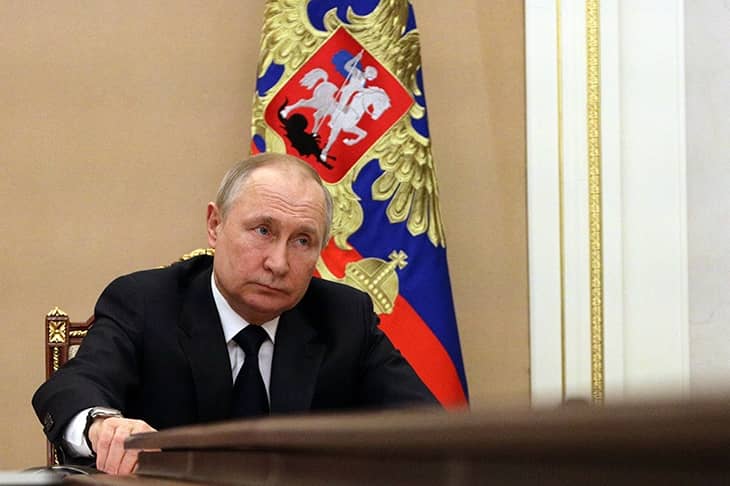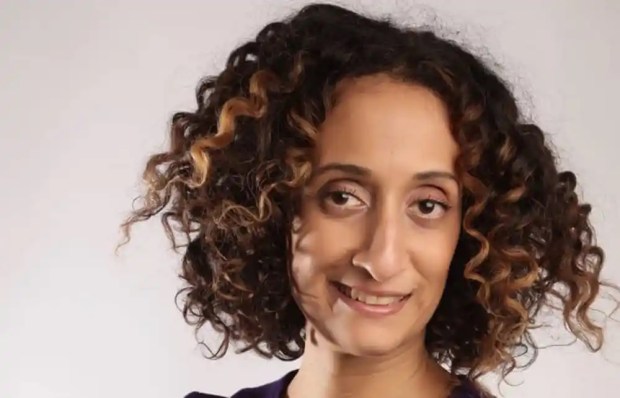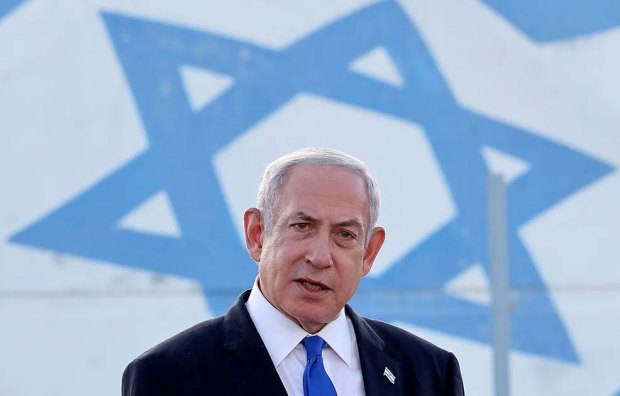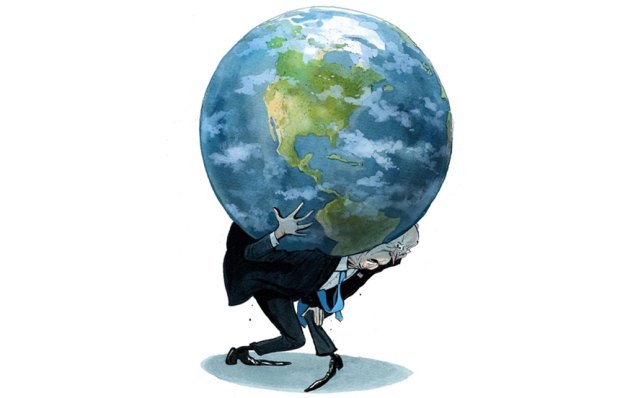Over recent days I have been reflecting on War and Peace. Or Special Operation and Peace as it must now be known in Russia, unless you want to spend 15 years in prison. And I am reminded once again of how utterly unpredictable war always is. On this occasion almost every-thing that people imagined just a couple of weeks back has been completely inverted.
In no particular order the list includes the following. A few weeks ago Vladimir Putin looked like a strongman. Today he looks like a weak and deluded leader. A few weeks ago Volodymyr Zelensky looked like an ex-comedian who might soon be out of his depth, if not his country. Today he looks like a remarkable wartime leader and an actual strong man. A few weeks back the Russian military seemed vast and unassailable. Today it looks corrupted, inept and surprisingly vulnerable.
In February the EU was riven and dis-united. Today it has rarely been more unified. Last month people still pondered the three-decade-old question ‘Whither Nato?’ Today the purpose of the alliance has rarely looked more obvious. Countries like Sweden which thought the second world war a murky conflict in which it was impossible to pick sides have started arming the Ukrainians. And even Switzerland has banned dodgy Russian oligarchs from accessing the country’s historically moral and transparent banking system.
On it goes. Poland has been transformed from a European pariah into a humanitarian superpower. Most astounding of all, Nato countries which spent decades freeloading off US defence budgets have suddenly stepped up. Germany just doubled its defence budget almost overnight.
So aside from the tide of bloodshed in Ukraine and economic misery inside Russia, the most striking thing about this conflict is that it seems to have overturned every recently held presumption. And, as in Tolstoy, it remains unclear exactly how this happened. Certainly it has not been due to any special leadership from the world’s hyperpower, led as it is by a president in cognitive decline and a vice president who talks as though she has, since childhood, never been in cognitive ascent. Still the West appears to have gelled for once, united by a common horror of seeing the type of land war Europe hoped to have left behind.
In such a moment, one might hope that there could be a certain ceasefire in the more minor conflicts that have riven the West of late. As at the start of the pandemic, is it too much to hope for that the war in Ukraine will provoke a permanent gear-change?
Most likely we should again enjoy this brief moment of common purpose for the time it lasts. My suspicion is that the unity the West is currently demonstrating comes in no small part from the fact that the threat Putin now poses is almost nostalgically familiar. Short of German tanks rolling over borders, Russian tanks doing the same is probably the thing Europeans are best-primed to deprecate. Few sights are more clarifying.
Yet some of the signs of frayed purpose are already there. Some of the parochial internationalists in our own country can still be found fighting their old battles within this new one. Some of continuity Remain, for instance, are busily pretending that Britain has been behind the rest of the field on Ukrainian aid – lying that we have been less involved than we have been in coming to the aid of the Ukrainian government. Such mono-maniacs, like the cruelly titled Lord Adonis, are even trying to pretend that Poland taking in more refugees than us is a demonstration of post-Brexit insularity – as opposed to an expression of simple geography.
On other fringes of the political spectrum are those who seem determined to find ways to pretend that Vladimir Putin’s invasion is somehow more defensible or otherwise not as bad as it seems. These include internet warriors of left and right desperate to make the old ‘false flag’ claims about Russian atrocities and Ukrainian heroism. As always when dealing with people caught up in conspiracy- thinking, one heaves a sigh. I am reminded of the 7/7 conspiracy theorists who liked to point out ‘facts’ such as that the train on which the bombers left Luton that morning did not in fact leave at the exact time that was first reported, making themselves expert in Luton train timetabling, and forcing everyone else to become so as well. And this all the while sidestepping the bloody fact that the bombs went off anyway.
I cringe and marvel at such people trying to sidestep the fact that Russia invaded Ukraine however you thread it. For there should be no particular shame in people simply conceding that Putin was a worse man than some people had realised in recent years. Certainly there is far less shame in conceding that than in trying to find explanations – or spread blame around – over atrocities that are long past indefensible.
Of course, at some point this war will have to stop, and some sort of vision of peace agreed upon. It is worrying to hear some of the more hawkish voices in our own country, as across Europe, getting high on the present – possibly transitory – feeling of clarity and unity. These people talk not only of no-fly zones, but of giving Ukraine instant Nato membership, expelling all Russians and other absurdities. None of this would be acceptable in any other conflict (Pakistan, anyone?).
Yet it is worth having some idea of what kind of peace we might be after. My own preference would be to make Ukraine a non-aligned state, like Austria in the Cold War, trusting that after the hopeful defeat and withdrawal of Russian forces, an embarrassed Kremlin doesn’t do anything similar for some while. I’d have thought the Baltic states were already off the to-do list. Taiwan too, I would imagine, if the Chinese Communist party values its economy.
But I don’t know how much appetite there is for conciliation at this stage. That is the problem in the war stage of war. There are too many excitable voices out there, thrilled by the sudden clarity of things. If there is one thing that might make them pause, I would suggest it would be to try and remember what we all thought only a month ago. And marvel afresh at the ability of war not just to shock us, but to turn all existing expectations on their head. From the moment the first tanks attempt to roll.
Got something to add? Join the discussion and comment below.
Get 10 issues for just $10
Subscribe to The Spectator Australia today for the next 10 magazine issues, plus full online access, for just $10.
You might disagree with half of it, but you’ll enjoy reading all of it. Try your first month for free, then just $2 a week for the remainder of your first year.















Comments
Don't miss out
Join the conversation with other Spectator Australia readers. Subscribe to leave a comment.
SUBSCRIBEAlready a subscriber? Log in